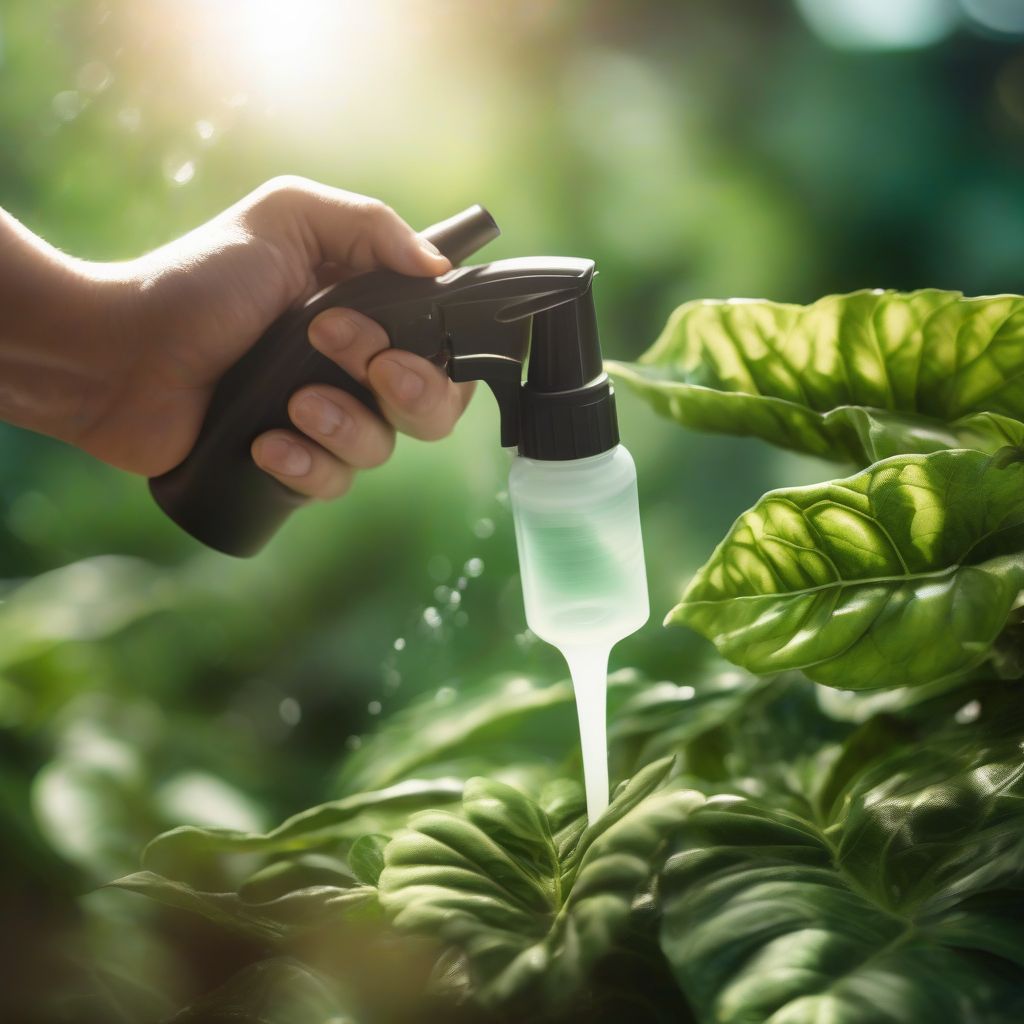Have you ever poured your heart and soul into nurturing your garden, only to watch in dismay as diseases ravage your precious plants? It’s a frustrating experience, but before you reach for harsh chemical solutions, consider the power of DIY organic sprays. These natural remedies can be just as effective, while also being gentle on the environment, your family, and beneficial insects. As a nutritionist and meal prep coach, I understand the importance of natural solutions, and in the garden, it’s no different. Let’s explore how you can protect your plants and keep them thriving with these simple, yet powerful, organic concoctions.
Understanding Common Plant Diseases
Before diving into DIY solutions, it’s helpful to understand the common culprits behind plant diseases. These include:
Fungal Diseases:
- Powdery Mildew: This appears as a white, powdery coating on leaves and stems.
- Downy Mildew: Look for yellowish spots on the upper leaf surface and a fuzzy gray or purple growth on the underside.
- Leaf Spot: Characterized by dark spots on leaves, often with a yellow halo.
- Blight: Rapid browning and wilting of leaves, stems, or entire plants.
Bacterial Diseases:
- Bacterial Leaf Spot: Small, water-soaked spots that may turn brown or black.
- Bacterial Wilt: Wilting of leaves and stems, often starting at the top of the plant.
Viral Diseases:
- Mosaic Virus: Mottled or distorted leaf patterns, often accompanied by stunted growth.
The Power of DIY Organic Sprays
DIY organic sprays offer a safe and effective way to combat plant diseases. They rely on readily available ingredients, many of which you may already have in your kitchen. These include:
Neem Oil:
Extracted from the neem tree, this oil is a powerful insecticide and fungicide. It disrupts the life cycle of pests and inhibits fungal growth.
Baking Soda:
A surprising multi-tasker, baking soda creates an alkaline environment that’s unfavorable for fungal growth.
Apple Cider Vinegar:
Its acidic nature helps to control fungal and bacterial diseases.
Garlic:
A natural antifungal and antibacterial agent, garlic can deter pests and diseases.
Milk:
Diluted milk can be effective against powdery mildew and other fungal diseases.
Recipes for Effective DIY Organic Sprays
Now, let’s get to the recipes! These simple concoctions can be easily prepared at home.
All-Purpose Spray:
- 1 gallon of water
- 1 tablespoon baking soda
- 1 tablespoon neem oil
- 1 teaspoon liquid dish soap (avoid antibacterial varieties)
Combine all ingredients in a spray bottle and shake well before each use. Apply to both sides of leaves and stems.
Garlic Spray:
- 2 bulbs of garlic, minced
- 1 gallon of water
Mix minced garlic with water and let it steep for 24 hours. Strain the mixture and add 1 teaspoon of liquid dish soap. Spray liberally on affected plants.
Milk Spray:
- 1 part milk
- 9 parts water
Mix milk and water in a spray bottle. Apply to plants at the first sign of powdery mildew.
Apple Cider Vinegar Spray:
- 1 tablespoon apple cider vinegar
- 1 gallon of water
Combine vinegar and water in a spray bottle. Use this spray for fungal and bacterial diseases.
 DIY Organic Sprays for Common Plant Diseases
DIY Organic Sprays for Common Plant Diseases
Preventing Plant Diseases
While DIY sprays are effective treatments, prevention is always the best approach. Here are some proactive steps:
- Choose disease-resistant varieties: Selecting plants known for their resistance to specific diseases can significantly reduce the risk of infection.
- Provide proper spacing: Adequate spacing between plants promotes good air circulation, which helps to prevent fungal diseases.
- Water at the base of plants: Avoid overhead watering, as wet foliage creates a conducive environment for fungal growth.
- Practice crop rotation: Rotating crops each year helps to disrupt disease cycles and prevent the buildup of pathogens in the soil.
- Maintain good garden hygiene: Remove dead or diseased plant debris promptly to prevent the spread of diseases.
The Importance of Consistent Application
The effectiveness of DIY organic sprays lies in consistent application. Spray your plants regularly, especially during humid or wet weather, which favors disease development. Early intervention is key to preventing widespread infection.
Testimonials and Expert Advice
“As a seasoned gardener, I’ve found that DIY organic sprays are invaluable for maintaining healthy plants. They’re gentle on the environment and highly effective.” – Jane, Master Gardener
“Organic gardening isn’t just a trend, it’s a way to protect our ecosystem while cultivating thriving gardens.” – Dr. Green, Horticulturalist
Conclusion
DIY organic sprays offer a natural and effective way to combat common plant diseases. By understanding the causes of plant diseases, utilizing these simple recipes, and practicing preventative measures, you can keep your garden thriving and disease-free. Remember, consistency is key! Have you tried any DIY organic sprays in your garden? Share your experiences and tips in the comments below! We encourage you to share this article with fellow gardening enthusiasts and explore more natural gardening tips on our website.



